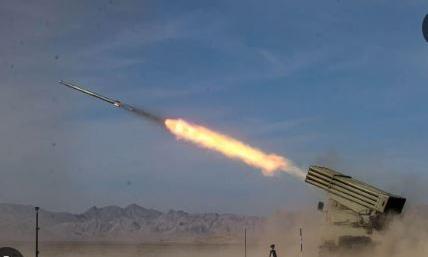
Pakistan and Iran seek mutual cooperation after missile strikes
text_fieldsIn a diplomatic turn of events, Pakistan and Iran expressed their commitment to "mutual trust and cooperation," signalling a desire for improved relations after engaging in tit-for-tat missile strikes within each other's territories.
The positive development followed Pakistan's "precision military strikes" against alleged "terrorist hideouts" in Iran's Sistan-Baluchestan province, resulting in nine casualties.
Pakistan's Foreign Minister, Jalil Abbas Jilani, engaged in a telephone conversation with his Iranian counterpart, Hossein Amir-Abdollahian, conveying Pakistan's eagerness to collaborate with Iran on "all issues based on the spirit of mutual trust and cooperation." The statement from Pakistan's Foreign Office highlighted Jilani's emphasis on the necessity for enhanced cooperation on security matters.
The recent escalation began when Pakistan conducted military strikes targeting what it claimed were terrorist camps within Iran's territory, specifically in Sistan-Baluchestan province, resulting in nine casualties. This action was perceived as a response to Iranian missile and drone attacks earlier in the week, targeting two bases of the Sunni Baloch militant group, Jaish al-Adl, in Pakistan's Balochistan province.
In a separate diplomatic engagement, Jilani discussed the "ongoing developments between Pakistan and Iran" with his Turkish counterpart, Hakan Fidan. During this exchange, Jilani clarified that the military strikes aimed to address alleged terrorist camps inside Iran, emphasising Pakistan's lack of interest in escalating tensions.
Amid the diplomatic manoeuvres, officials from the foreign ministries of Iran and Pakistan engaged in goodwill messages, showcasing a swift de-escalation of tensions.
Foreign Office Spokesperson Mumtaz Zahra Baloch shared positive exchanges between Additional Foreign Secretary Rahim Hayat Qureshi and Iranian counterpart Seyed Rasoul Mousavi on social media platform X. Qureshi reiterated sentiments of fraternity, emphasising the need to resolve issues through positive dialogue, restore trust, and address common challenges, including terrorism.
Mousavi, in his response on X in Persian, expressed the belief that the Ministry of Foreign Affairs in Iran serves as the endpoint for prevailing tensions. He emphasised that leaders and high officials from both countries recognise that tensions only benefit terrorists and enemies of the two neighbouring nations.























